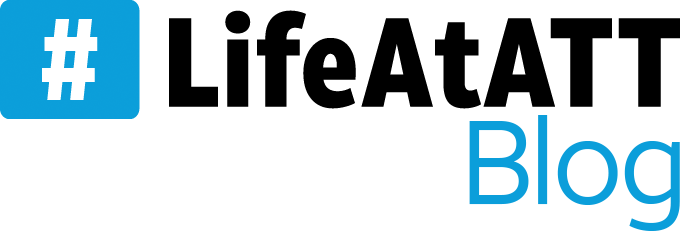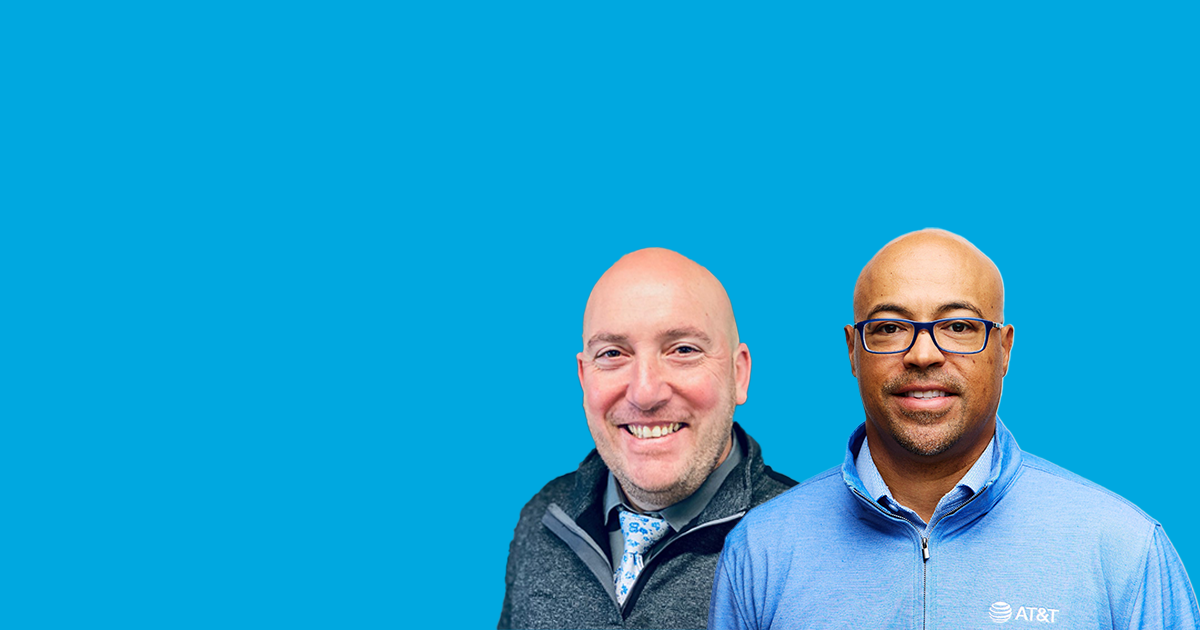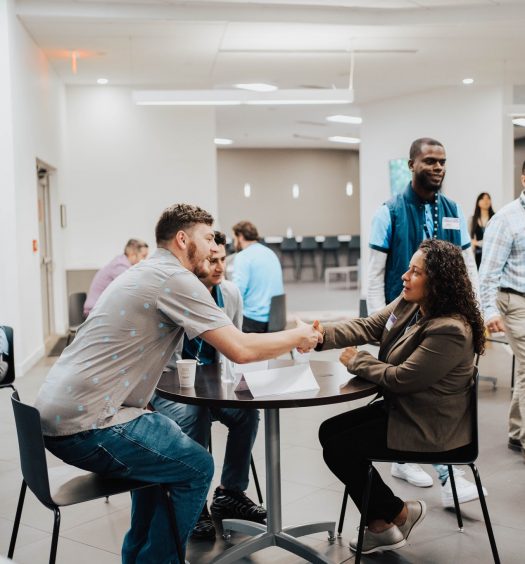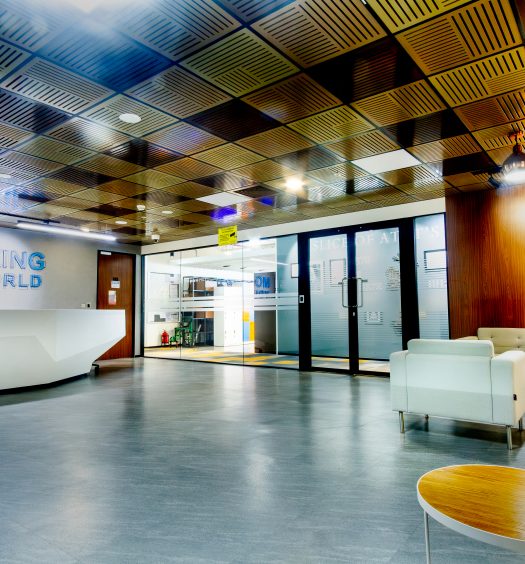At AT&T, we understand the value of the mentor-mentee relationship. This unique bond not only inspires and motivates but it also provides essential guidance, support, and encouragement. We spoke with three leaders who share how mentorship has shaped their personal and professional growth and the meaningful ways they are paying it forward.
What strategies do you find most effective for fostering a strong mentor-mentee relationship?
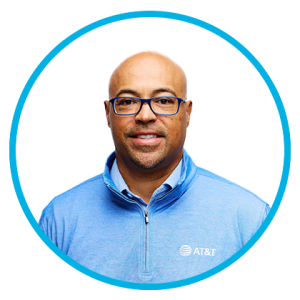 Jwyanza Watt, VP — Workplace Services: Fostering a strong mentor-mentee relationship begins with building trust and connection; mentor circles at AT&T provide an incredible platform to make this happen. One of the most effective strategies I’ve seen is starting with common ground — whether that’s shared skills, interests, passions, or career goals. Mentor circles are particularly valuable because they bring multiple perspectives into the conversation. Each participant offers unique experiences and insights, creating a dynamic learning environment where everyone can grow. These sessions also reinforce our value to ‘Win as One’ by encouraging collaboration and fostering a sense of community.
Jwyanza Watt, VP — Workplace Services: Fostering a strong mentor-mentee relationship begins with building trust and connection; mentor circles at AT&T provide an incredible platform to make this happen. One of the most effective strategies I’ve seen is starting with common ground — whether that’s shared skills, interests, passions, or career goals. Mentor circles are particularly valuable because they bring multiple perspectives into the conversation. Each participant offers unique experiences and insights, creating a dynamic learning environment where everyone can grow. These sessions also reinforce our value to ‘Win as One’ by encouraging collaboration and fostering a sense of community.
Another key strategy is creating a consistent and supportive presence as a mentor. By showing up with authenticity and a willingness to share my experiences, I help create an environment where mentees feel encouraged to engage and grow. At the same time, mentor circles serve as a reminder of the importance of balance — not just in achieving career goals but also in maintaining personal well-being.
Can you share an example of a time when being a mentor impacted your own professional growth?
 Steven Eiger, AVP — Mid Markets Customer Success: First, every time I lean in to be a mentor, I meet someone new who has a unique perspective from mine. I always learn something from them. Secondly, I enjoy investing in others and know that in turn benefits the whole company. Lastly, mentoring is an excellent way to grow your professional network. By establishing strong relationships, I have created valuable connections that may lead to future opportunities and collaborations.
Steven Eiger, AVP — Mid Markets Customer Success: First, every time I lean in to be a mentor, I meet someone new who has a unique perspective from mine. I always learn something from them. Secondly, I enjoy investing in others and know that in turn benefits the whole company. Lastly, mentoring is an excellent way to grow your professional network. By establishing strong relationships, I have created valuable connections that may lead to future opportunities and collaborations.
I am always humbled when I’m asked to mentor. It is amazing to think someone looks to me in that light and I get satisfaction knowing that I have made a positive impact in someone else’s life and career.
What advice would you give to someone hesitant about seeking a mentor?
Watt: Seek out an active listener. Mentorship has been an incredible learning experience for me, and one of the most profound lessons I’ve gained is the value of active listening. Through my role as a mentor, I’ve learned that listening attentively to both the spoken and unspoken words can reveal valuable insights, not only for the mentee but also for the mentor.
Active listening has also strengthened my relationships. By acknowledging a leader’s achievements in real-time, I was able to open doors for meaningful conversations and build rapport. It has also helped me stay relevant, ensuring that I’m in tune with the priorities of the organization and our leadership. This is a perfect example of how mentorship can be reciprocal; as much as I’ve helped guide others, I’ve been equally influenced by their ideas and approaches.
Eiger: A mentor can provide invaluable guidance, support, and insights that can help you navigate your career or personal growth. They can offer perspectives based on their experiences that you might not have considered. If you are unsure or intimidated, try leveraging group settings. Our employee groups are amazing places to get started where mentoring is infused and everyone is there for a common purpose of giving back to our communities through development.
I always tell people that they should be genuine and purposeful in approach. Choosing or finding the right mentor may take time. Practice self-reflection and think about what you hope to gain from the mentorship. Consider your goals or areas you need guidance. This will help you approach potential mentors with purpose. Additionally, be prepared to offer your own perspectives. We want and value them; mentorship is a two-way street.
There’s no better time than now to find a mentor. These relationships not only foster personal and professional growth, but they also help create a collaborative and supportive culture.
Ready to make a meaningful connection?
Explore current opportunities
